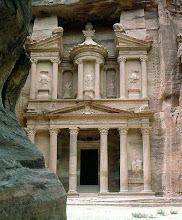"White people don't know what to remember and what to forget, what to let go of and what to preserve."1 This is a quotation taken from David Loewenthal's The Past Possessed: The Heritage Crusade and the Spoils of History describing an Aboriginal interpretation of Western Culture’s desire and obsession with collecting. When I first read the quotation, I immediately pictured my bedroom at home filled with endless amounts of objects and materials I have been 'saving' for the past five to ten years. I know that I'll never need many of these items again, yet I just keep on saving them. While I do not necessarily agree that it is 'White people' per say that have trouble dealing with the issue of collecting, I believe it more to be a cultural phenomena amongst Western societies.
Lowenthal continues along this line of thought by suggesting that White people are unsure of their past and therefore strive to keep everything.2 This idea I can understand due to the massive amounts of migration in the European and consequently North American populations. With such a great dispersal of cultures, it only makes sense that a migrated community would want to preserve all the remnants of their native culture. People are always striving for continuity with the past so that they may easily trace back to their origins for a better understanding of their present selves. The reason for saving everything is that we fear losing our identities! Given our consumer driven culture of today, does it not then make sense that what we would want to keep everything from the grandeur to the mundane. Never in the history of the world have humans had such an abundant material culture. Given this cultural stipulation, I understand now why collections both by institutions and individuals are expanding at exponential rates. The more things we have, the more things we have to preserve.
The really interesting ideas that emerges from all of this are the 'why' factors. Why MUST we collect everything? Why do some cultures feel the need to preserve every artifact, yet others can simply throw them away without a second thought? Is it in our collective interest to preserve all aspects of material culture? Would it be more beneficial to society if we were able to collectively forget, or move on? I do not have the answers to these questions. I have already flirted with ideas about the migration of cultures, and even on cultural makeup as possible explanations. What I ultimately think is that it boils down to our cultural interpretation of what history means to us. For many Western Cultures we view history as a sequence of events with a logical start and end. We need to mark our position on the line of time so that our future generations will be able to discern information about our lives and learn from them. This also ties into the idea of immortality which is omnipresent in many western societies as we fear death more than anything (except for public speaking of course!). This is the discrepancy that Lowenthal's Aborigine points out. For non-Western cultures history has a different meaning which results in a different interpretation. I find it fascinating how culture can materialize itself in all facets of the human experience. I just never thought to relate my cultural definition to the mounds of objects I've hoarded in my room!
Notes.
